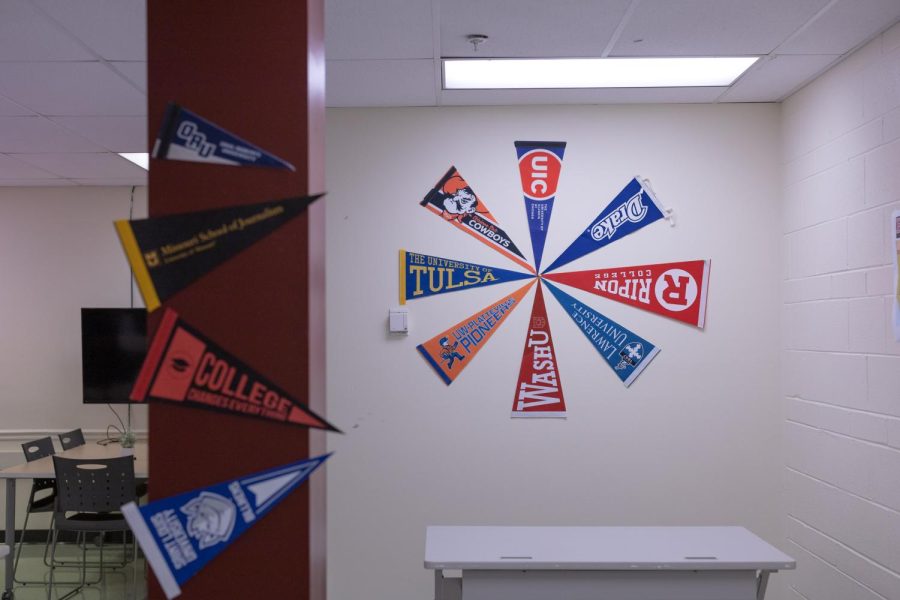For many students, college can be a stressful topic, whether it be because of the decision to attend college, the fear of moving away or just unsure of what major to choose, especially with college coming up next fall or, for some, little as six months. It is normal to worry about this big change.
According to The Washington Post, it is normal for people to change their major at any point in time; an average of around 52% of students actually end up changing their minds on what to major in.
Plenty of anxiety can surround college plans and decisions. For many students, the pressure might come from force to pursue a family business or follow in the footsteps of their parent’s dreams, but not in their own footsteps. The unknown can be scary, but it is inevitable.
“Doing something just because someone else wants you to do it is not going to make you happy,” senior Maranda McNeany said. “It’s your life, and you take control of your own life; I think that’s really important to realize.”
Pursuing a career that is meaningful to a person tends to make the workload more bearable, rather than having a career in something that is not of interest and that one may tolerate or even despise.
There are numerous ways people can branch out if they are unsure what to do as a career. For starters, researching different majors can be helpful or asking people in fields of interest can help open up the mind to new ideas. Making a list and eliminating things that are a definite no is another way to shorten the list of possible opportunities.
 “It took a little bit of thinking and figuring out what I did not want to do before I figured out what I did want to do,” senior Callie Bemis said. “I did the process of elimination.”
“It took a little bit of thinking and figuring out what I did not want to do before I figured out what I did want to do,” senior Callie Bemis said. “I did the process of elimination.”
If someone is on the fence about what to major in or has no idea where to start, there are plenty of opportunities and no rush. Things such as graduating early to take time off, going to trade school, a community college, university or working right after high school are all different options that people may take.
According to College Board, there are some solutions people can do if they are unsure what they want to do with life. Making a list of 10 things one likes and their strengths and weaknesses is a useful starting point. It can also be helpful to speak to advisers and professionals, such as school counselors.
There is an endless list of things to do and how to do it when picking a major or when changing majors. There are still ways to find out what their true passion may be.
However someone may go about it, there is no right or wrong way to approach life after high school.









